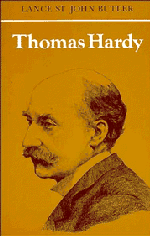Book contents
7 - Jude the Obscure
Published online by Cambridge University Press: 03 May 2011
Summary
FLESH AND SPIRIT
One of the many causes of Tess Durbeyfield's tragedy is Angel Clare's lack of sensuality. Had sexual desire been stronger in him, we are told, he might have made love to Tess on their wedding night in spite of his profound shock at discovering her not to be a virgin; but ‘his affection itself was less fire than radiance’ and he is not like those ‘who remain sensuously infatuated with what they intellectually despise’ (TD, 36). This surprises and alarms Tess, who has not been aware of this hard edge to his character:
She was appalled by the determination revealed in the depths of this gentle being she had married – the will to subdue the grosser to the subtler emotion, the substance to the conception, the flesh to the spirit.
(chapter 36)Perhaps Angel Clare is not so much short of libido as exceptionally capable of putting mental and spiritual values before physical satisfaction. Here Hardy is touching on a delicate theme that lies beneath some of his other novels – for instance beneath his handling of Clym Yeobright and Eustacia Vye in The Return of the Native; it is the theme of the ‘deadly war waged between flesh and spirit’ that he describes in the Preface to Jude the Obscure.
This theme, taken up at length in Jude, is not altogether easy for modern readers to adjust themselves to. We are inclined, being influenced by writers such as D. H. Lawrence, to see no separation between the carnal and the spiritual: Lawrence recommends a sort of modern materialism in which, for example, making love can be the supreme spiritual experience.
- Type
- Chapter
- Information
- Thomas Hardy , pp. 120 - 141Publisher: Cambridge University PressPrint publication year: 1978

